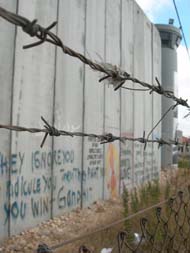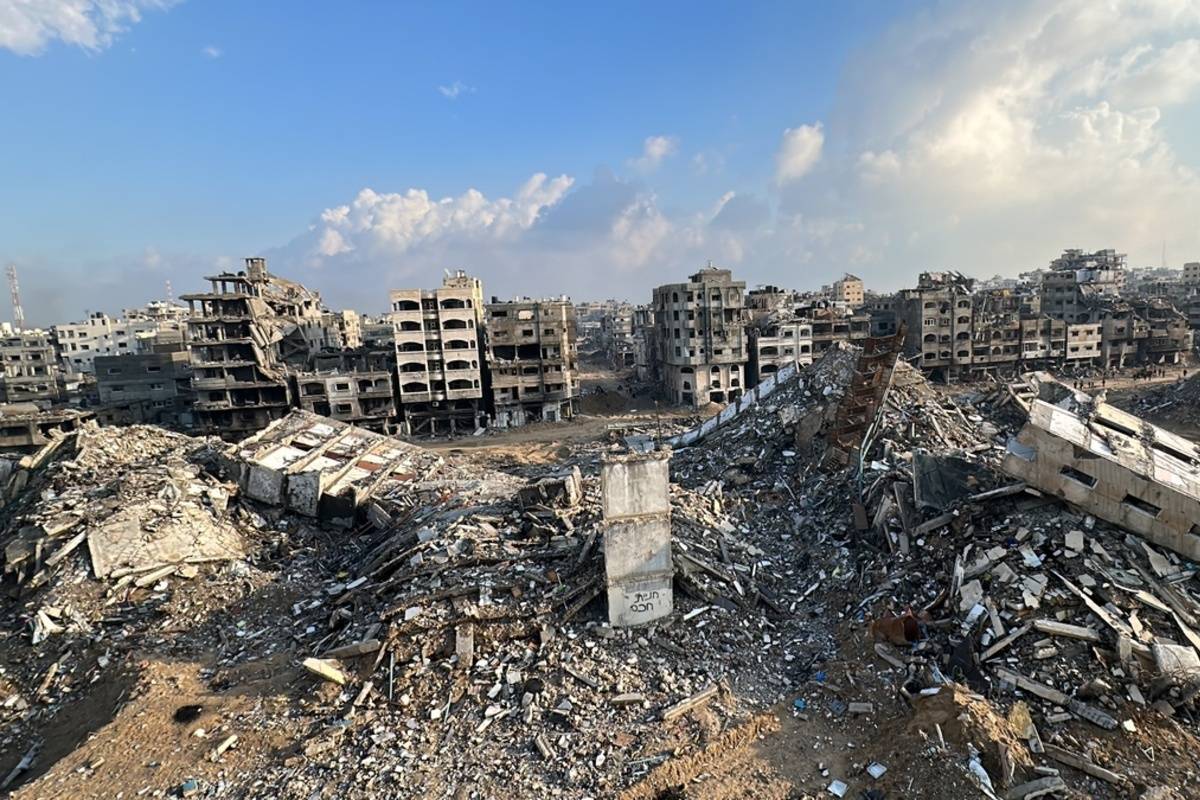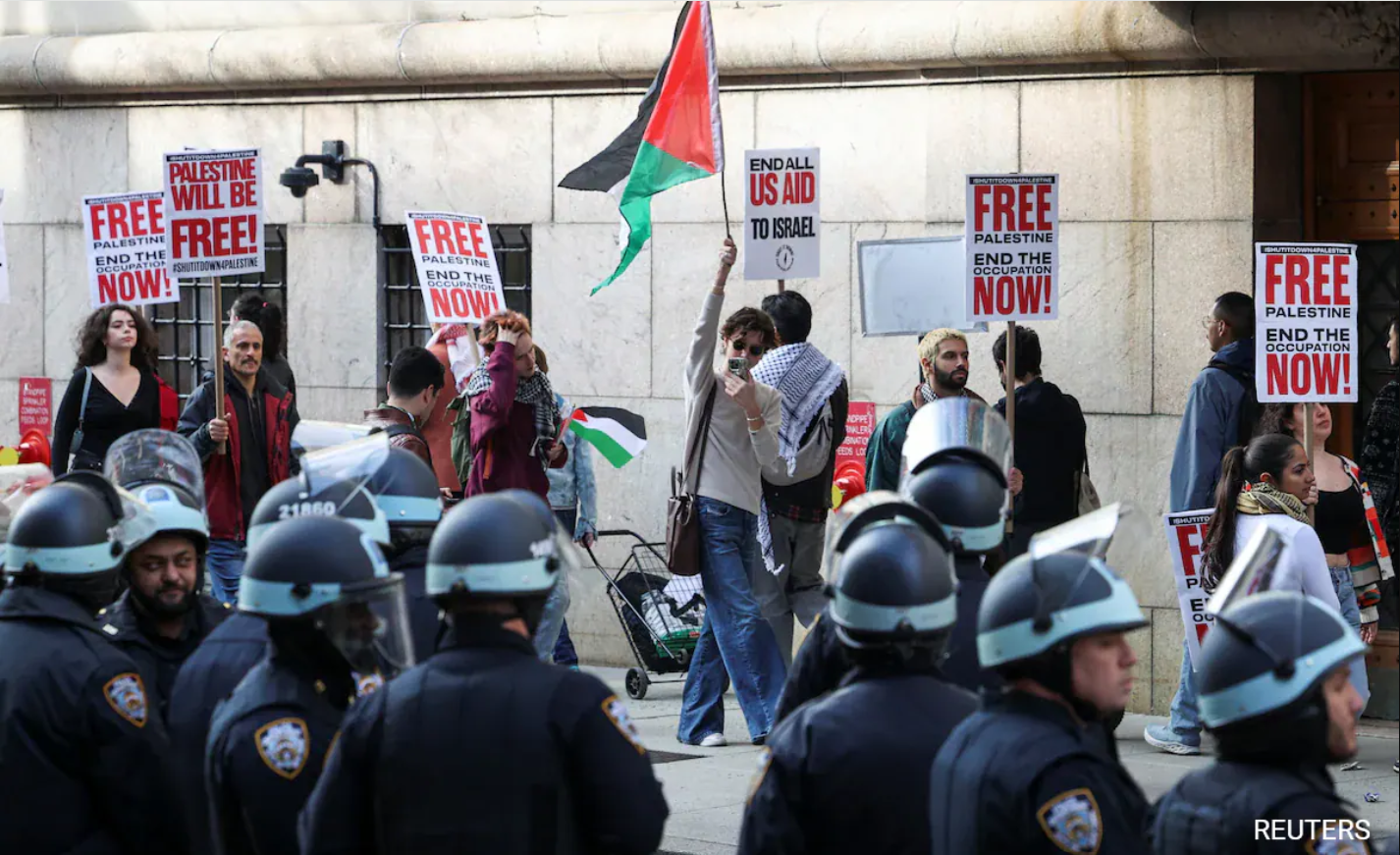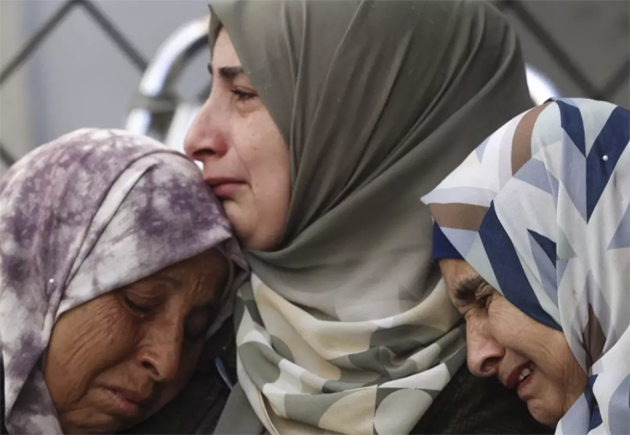
Walls are interesting constructions. They exist within our dual need for shelter and our excuse for security; holding structures up, just as they keep the “other” out. Here in Palestine, we are enveloped by such walls. They come in the form of 25-foot high concrete slabs, electrified fencing topped with barbed wire, and numerous watchtowers guarded by thermal imaging video cameras and snipers. Despite the International Court of Justice’s condemnation that the wall is "tantamount to annexation” and that it “impeded on Palestinians’ right to self-determination,” Israel continues to build these barriers, systematically, consistently, and illegally. Under the fallacy of “state security,” Israel continues to dispossess Palestinians of their land and strip them of their basic human rights everyday.
It was in west Jerusalem that these walls pressed most heavily against my chest. Venturing out of the West Bank, having to pass through the perverse cages of Qalandiya checkpoint, and entering the center of Israel’s fortress of military isolation, fueled a kind of emotion that left me drained. It was not rage I felt; something I would have expected witnessing the injustice of Palestinian life on the other side of what is misleadingly referred to as a “fence.” Instead it was an empty feeling; a hollow kind of sadness that these, too, were people. They were people waiting at the bus stop, school girls giggling in huddles, and parents pushing strollers. These were the images that tugged at me; this reality. They were people who endorsed a state which successfully constructed a gargantuan separation barrier to keep them “safe” from the “enemy” who, are also just people; people waiting at the bus stop, school girls giggling in huddles, and parents pushing strollers.
I wonder, do these people, ordinary Israelis, know? Do they know that what their state describes as an “anti-terror fence” has little to do with protecting them as it does to displace others; that it has led to widespread confiscation and destruction of Palestinian property? Do they know that it separates people from their families and livelihoods; those which are similar to their own? Do they know that it contributes to widespread poverty; that nearly 20 percent of their Palestinian neighbors in east Jerusalem not to mention over half of the Palestinian population in general live below the poverty line? Do they know that as the wall grows so do the number of checkpoints and the human rights violations that undoubtedly come with them? If the majority of Israelis are truly shrouded in a colonial state-induced coma, this is what I would want them to know:
Know that in the West Bank alone there are more than 600 internal military checkpoints and roadblocks, which severely impede on Palestinians’ freedom of movement. Among the most alarming consequences of these checkpoints is the restriction, and often denial, of passage for Palestinians in need of immediate medical attention. In 2008, 21-year old Naheel Abu Rideh was denied entry via the Huwara checkpoint near Nablus and forced to give birth to a stillborn child. Naheel’s case is not unique, and such cases are all too common, especially as the average ambulance journey time for a Palestinian is up to two hours.
Know that in addition to obstructing access to medical care, the checkpoints imposed by the wall separate Palestinians from the agricultural land used to support their families. Twisting its way in and around 40 percent of the West Bank, the separation barrier has isolated and destroyed thousands of dunums of the best agricultural land, mostly planted with olive and other fruit trees. In the Zbouba village northwest of Jenin, Palestinian farmer Imad Araf Bayer Jaradat experienced such loss. Due to construction of the wall, he lost over 80-percent of his land, and Israeli bulldozers uprooted over 300 of his almond trees. When he tries to access his land which is not isolated behind the wall, he faces harassment from Israeli soldiers who threaten him with potential arrest for being too near it.
It’s difficult to understand how either a woman in labor or a farmer tending to his crops could be viewed a security threat, as an “infiltrator” or a “terrorist.” Ultimately, whether we erect them in the form of concrete edifices, or in the metaphysical space of what we want to believe, walls are a representation of our greatest and most inhibiting fear: each other. In Palestine, people are caught between two forces which promote this xenophobia: the walls of an occupier that has annexed their land and dispossessed them, and an international community who pusillanimously allows the occupier to continue doing so under its false premise of state “security” and “sovereignty.” Despite their forced fragmentation, however, Palestinians remain connected through their common displacement; in anticipation for the moment when they can rejoice over broken barriers and homecomings. As the late Palestinian poet Mahmoud Darwish writes, “Here on the slopes of hills, facing the dusk and the cannon of time/Close to the gardens of broken shadows/We do what prisoners do/ And what the jobless do/We cultivate hope.”
Hajr Al-Ali is a Writer for the Media and Information Department at the Palestinian Initiative for the Promotion of Global Dialogue and Democracy (MIFTAH). She can be contacted at mid@miftah.org.






